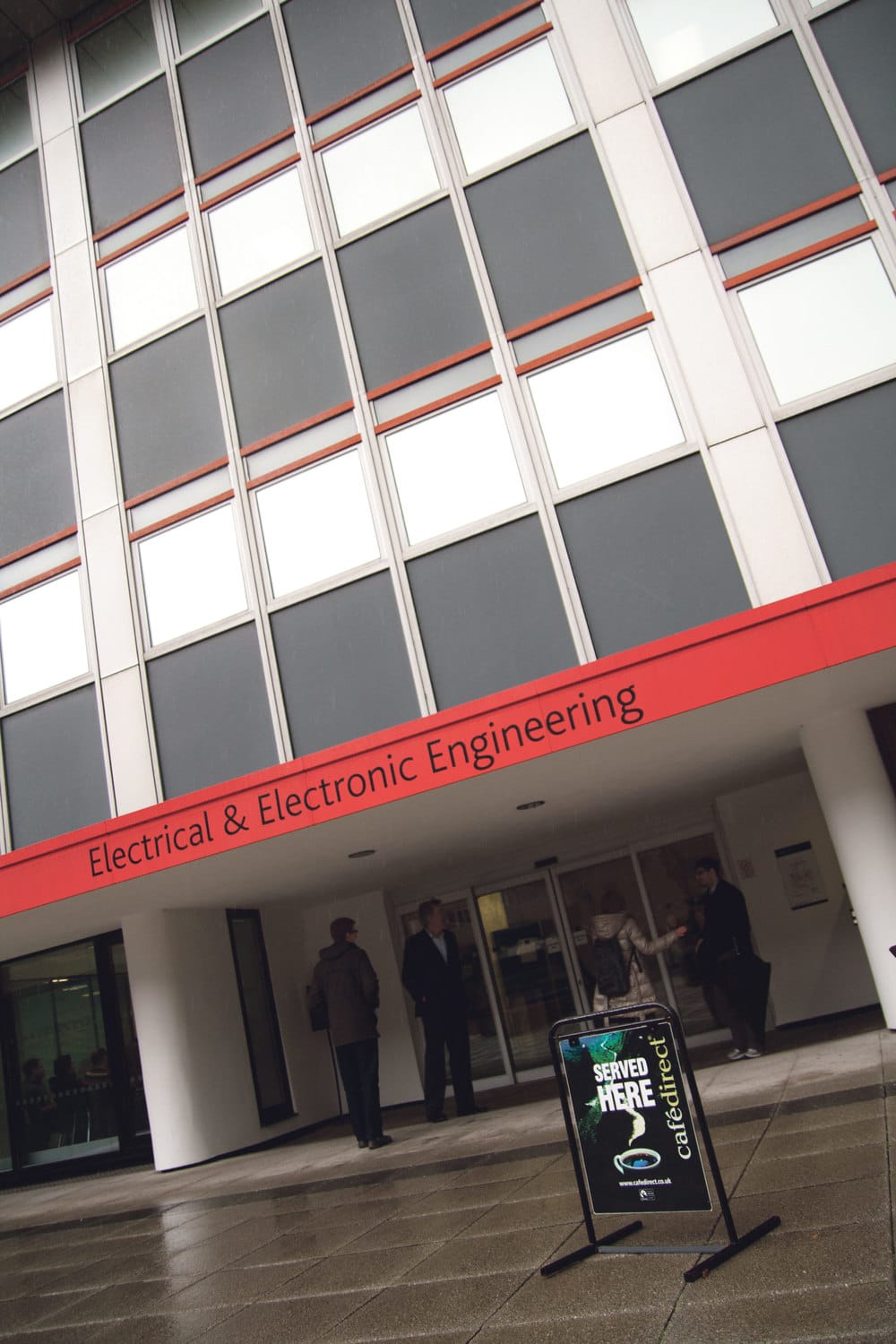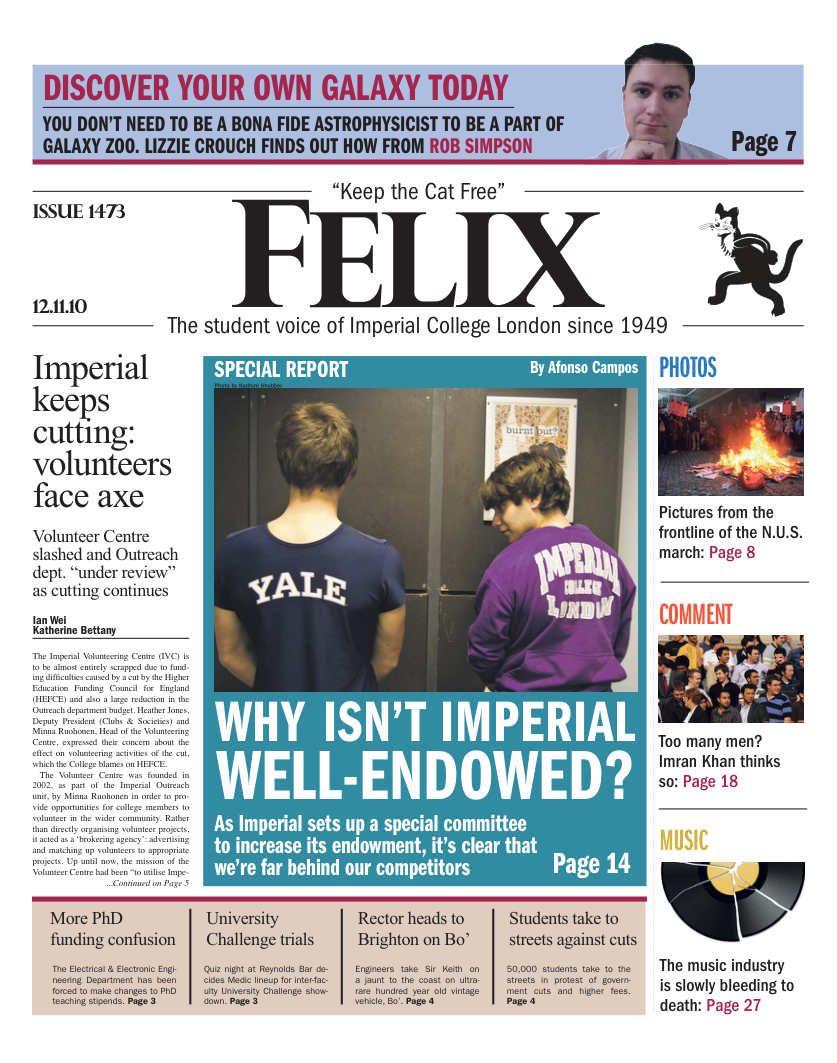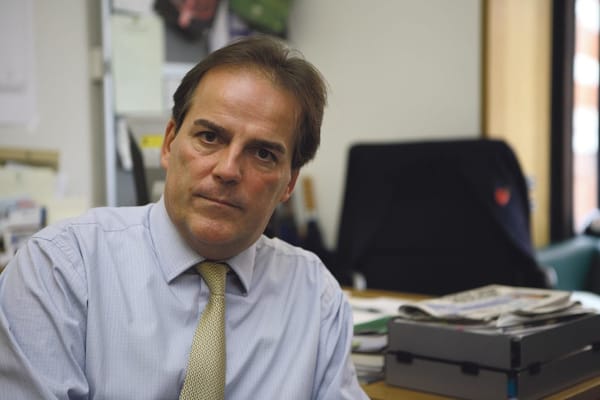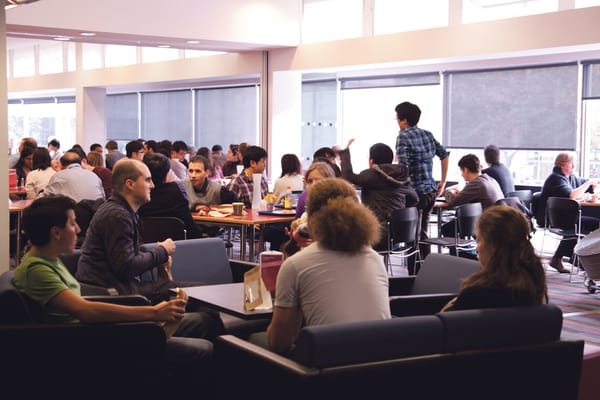Uncertainty over PhD teaching income
Union lobby EEE department to ensure that PhD students get fair deal

Senior figures in the Department of Electrical and Electronic Engineering have begun concerted efforts to ensure that postgraduate students understand the circumstances under which they are paid for teaching duties, introducing a potential new measure to reduce the current bursary and have students explicitly earn their lost money.
As reported by Felix last month, postgraduate students in the department found themselves confused over whether their funding included payment for teaching work, a matter that was further complicated by the various types of bursary available, whether from Imperial College London itself or from outside sources such as the Engineering and Physical Sciences Research Council (EPSRC).
A statement was issued last week to all postgraduate students, regardless of funding type, by Director of Postgraduate Studies Dr Patrick Naylor, further clarifying the situation in order to overcome any discrepancies in prior information. The Head of Department, Professor Peter Cheung, had previously admitted to Felix that the postgraduate acceptance letter detailing their requirements for teaching work “wasn’t clear” in communicating the relevant information to students.
The main aim of the new information was the announcement that ‘payment for teaching must be separated from the student stipend explicitly’. The department goes on to explain the two reasons for this; the fact that earnings for teaching must, by law, be paid through the College and that EPSRC stipends should not be used to pay for teaching. It is also stated that these new changes have been retroactively introduced from the beginning of this term.
The funding provided by College will now be ‘split into two elements’. The first is a college bursary which ‘may be adjusted to remove any element implicitly or explicitly associated with teaching’. The second is teaching work, which ‘will be paid through the College’s payroll system at the published hourly rates’.
A meeting was organised last Friday for postgraduate students to voice their opinions on the matter. Imperial College Union President Alex Kendall was also in attendance. He spoke to Felix about the proceedings while also discussing possible plans that the department may implement.
Staff behind the funding changes have remained tight-lipped over potential future changes
He explained the adjustment to the College bursary; prior to the confusion, around £700 was added onto the normal college-funded stipend of approximately £15,000 to cover the cost of teaching duties. However, the issue was raised that there weren’t enough teaching hours to cover the desired ‘4 hours a week’ for each student to undertake.
Kendall was impressed, however, by some ideas from students in attendance hoping to overcome the issues: “There was a good suggestion put forward by a PhD student that the department should provide an extra £700 to the college-provided bursary. As soon as a student earns more than this £700 through extra teaching, then they would get paid for the extra teaching that they provide. The department went away thinking about the idea. Potentially it’s great for students.”
Students agree, according to Kendall, stating that those present “appeared happy with this idea”. However, any potential introduction of an idea formulated at the meeting may only account for this academic year, with there being a high chance that the additional sum for teaching will then be removed. Students would be paid for any teaching duties they perform through the College’s payroll system.
Staff behind the funding changes have remained tight-lipped over potential future changes, with Dr Naylor stating that he would be “very happy” to discuss what funding will change but not “until we have finished our consultation process and finalised all the details.”








